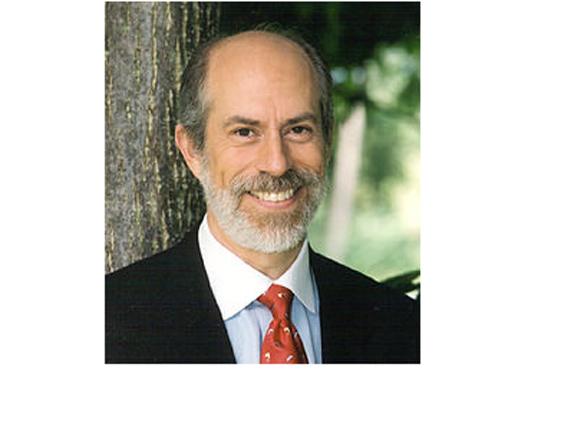Frank J. Gaffney, Jr., is no stranger to controversy. As an expert on international terrorism in the age of covert and overt jihad, Gaffney has opponents on the domestic front and enemies around the world who would prefer that he not speak his studied opinion on threats to the U.S. and to America’s allies.
Frank J. Gaffney, Jr., is no stranger to controversy. As an expert on international terrorism in the age of covert and overt jihad, Gaffney has opponents on the domestic front and enemies around the world who would prefer that he not speak his studied opinion on threats to the U.S. and to America’s allies.
Gaffney served as of Deputy Assistant Secretary of Defense for Nuclear Forces and Arms Control Policy during the 1980s, when major security issues dealt with relics of the Cold War and emerging risks from pockets of global destabilization as dictatorial regimes unraveled. He currently heads the Center for Security Policy as the organization’s founder and president, and he has turned his attention to terrorist assaults waged on behalf of Islamic extremism.
“This is the most important topic of our time,” Gaffney said in introduction to his brief presentation during the morning session of the Future Conference 2015 at La Mesa’s Skyline Wesleyan Church on June 15.
“Jihad is about holy war,” Gaffney continued, describing the common misrepresentation that jihad as an Islamic religious term refers only to “submission to Allah” as a believer’s personal quest of faith and obedience to tenets of the Islamic religion. Gaffney discussed other phrases from Islam in expanding on this point.
“Dar al Islam” makes reference to the re-established caliphate, literally ‘House of Islam,’ under which Islamic religious laws rule governments through the doctrines of “sharia,” he said.
By contrast, “Dar al Harb” (meaning “House of War”) is used for those resistant individuals and nations that are to be forced or coerced into submission to sharia.
According to Gaffney, this view within strains of Islamic theology adheres to religious totalitarianism, with the ultimate objective of imposing worldwide domination of Islam over all other belief systems and freely chosen actions of individuals. And this is not only attached to those untethered, nonstate-affiliated terrorist groups such as ISIS, but is also central to the international maneuvers of Iran, which “embraces sharia and the goal of world domination.”
Gaffney further distinguished the forms of jihad into the categories of violent jihad, civilization jihad and stealthy jihad.
Gaffney harked back to the thwarted attack on participants in the Mohammad Art Exhibit in Garland, Texas, on May 3, as an instance of violent jihad. He observed that the intent behind the attempted murders was to restrict freedom of speech. He went further, though, in explaining that the wider cause of Islamic extremism, by violence and by other means, is posed “against all freedoms.”
Gaffney’s Center for Security Policy organization conducted a survey of Muslims for views about the proper relationship of sharia with U.S. laws and governance. Fully 25 percent of the Muslims surveyed said that the U.S. should live under sharia.
Gaffney admitted that, as knowledgeable as he is on the subject, until recently he was unaware that the U.S. has ceded control over refugee status to the United Nations. He detailed how the UN High Commissioner for Refugees sets the definition of who qualifies as a refugee, and how, surprisingly, 90 percent of the refugees currently being brought into the country are Muslims. Gaffney also disclosed that 1.9 million Muslims have entered the U.S. since the massive 9/11 terrorists attacks in 2001.
Gaffney identified groups to be monitored closely as the Muslim Brotherhood (“former Congresswoman Michele Bachmann had the right idea, to legally designate this as a foreign terrorism organization”) and the Organization for Islamic Cooperation (“the most dangerous organization you have never heard of”).
Gaffney proposed protective responses.
“Secure our border,” he said. He spoke an aside to San Diegans, saying people along this stretch of the southwestern border understand the dangers well, knowing that cross-border human and drug trafficking is harmful enough to local communities, even as terrorist access to that criminal infrastructure can prove deadly.
“Secure the definition of refugee status,” Gaffney listed as another security measure.
“Secure religious facilities,” Gaffney said, outlining how “interfaith dialogue” for those committed to jihad is “not real ecumenism,” but is about building “one-way bridges” as a political effort to protect promotion of sharia, not about advancing religious understanding among believers of differing faith traditions.
And as an often-under-considered measure, “secure our grid,” Gaffney urged.
Were the power grid to be disabled for a year, a solid estimate is that “nine out of ten of us will die,” he said.
Gaffney suggested that individual citizens could be effective in acting when national leaders seem powerless to respond. He addressed the audience, which was laced with adherents of orthodox Christianity and Judaism, saying each one could be “standing against true evil in this world.” He said, just as for possible bombs and suspect abandoned packages, “if you see something, say something.” He counseled that some political counteractions within the states have already been achieved more rapidly than at the national level, with eight states already having passed legislation disallowing application of sharia in courts as legally binding on unwilling litigants.
Gaffney advised against despairing dismissal of ever successfully assimilating Muslims into American practices of liberty and toleration. He assessed the overall stances of Muslims as following a standard Bell curve, with 10 percent committed unassailably to activist jihad, another 10 percent completely opposed to extremism against freedom, but with a “big middle of Muslims up for grabs.”
The Future Conference was staged over four days at Skyline Church. Other featured speakers touching on terrorism in the modern age included East County’s Bishop Sarhad Jammo, prelate of the Chaldean Catholic Church whose bishopric resides at St. Peter’s Chaldean Catholic Cathedral in El Cajon, and human rights activist Mark Arabo. They addressed conferees about the ongoing beheadings of Christians in the Middle East.
Skyline Church conducts Sunday worship services at 8:30 a.m. and 10:30 a.m. More information can be obtained at (619) 660-5000 or at www.skylinechurch.org.














